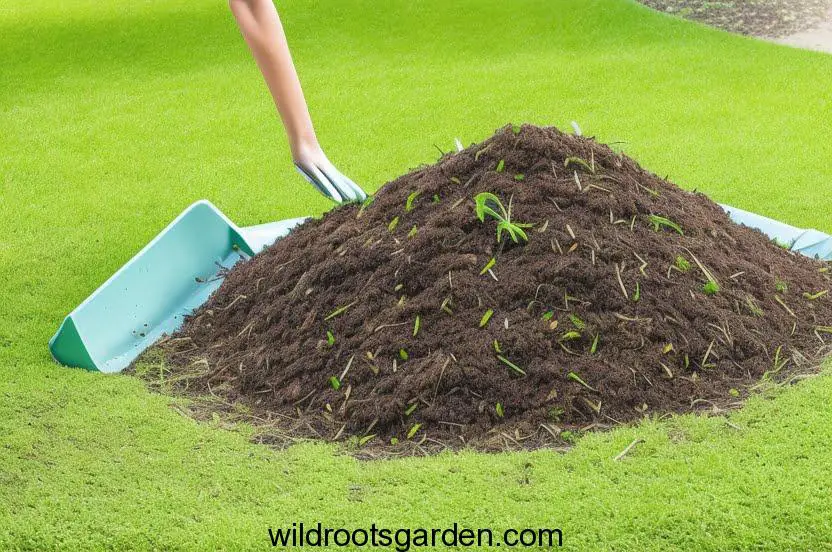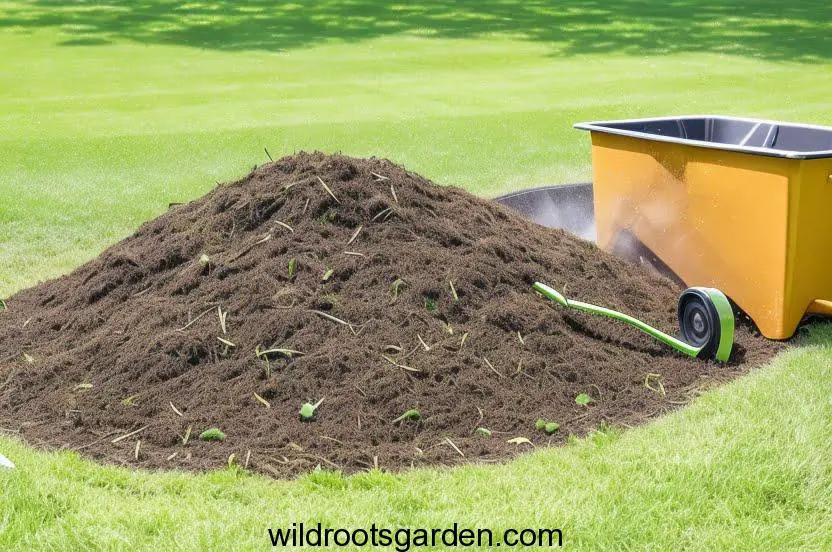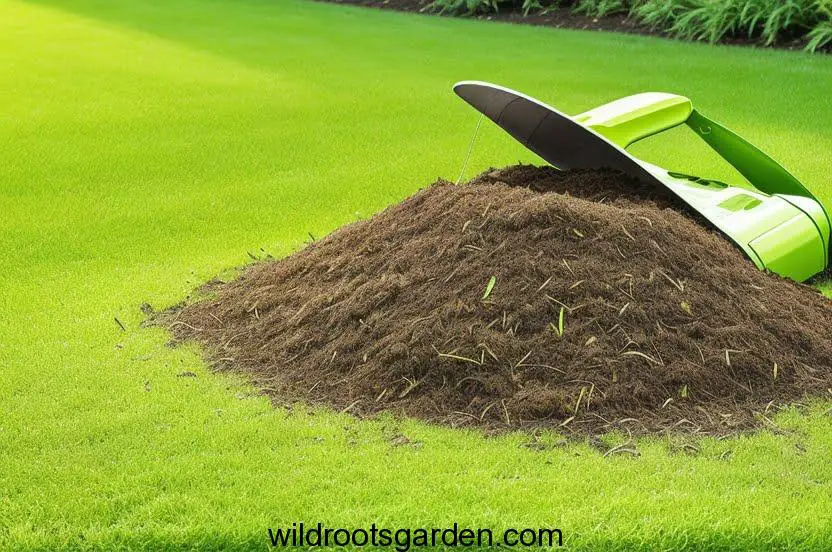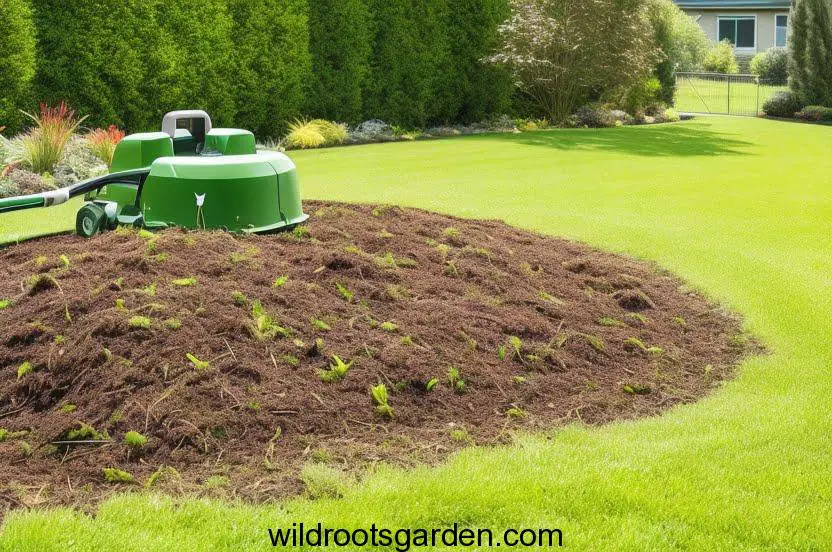Are Grass Clippings Brown or Green for Compost? A typical organic material used in composting is grass clippings. Composting is a natural process of degrading organic waste into nutrient-rich soil additions. Recycling kitchen and garden scraps help to cut down on the amount of waste that ends up in landfills. Grass clippings can be either brown or green, depending on a number of variables. In this article, we’ll examine whether grass clippings are green or brown for composting and offer helpful tips on how to do it successfully.
Composting is a great technique to improve the soil in your garden and encourage the growth of healthy plants. For successful and nutrient-rich compost to be produced, it is imperative to comprehend the many types of materials utilized in composting. When composting, the color of grass clippings, a byproduct of lawn care, is frequently questioned.

JUMP TO TOPIC
- 1 Understanding Composting
- 2 The Importance of Brown and Green Materials in Compost
- 3 Are Grass Clippings Brown or Green?
- 4 Factors Affecting Grass Clipping Color
- 5 Composting Grass Clippings
- 6 Tips for Composting Grass Clippings
- 7 Common Mistakes to Avoid
- 8 Using Composted Grass Clippings
- 9 Conclusion
- 10 FAQs
Understanding Composting
Organic waste decomposes naturally during the composting process producing compost, a black, crumbly substance. Many organic materials, such as kitchen leftovers, yard waste, and other biodegradable materials, are decomposed in this process. A nutrient-rich fertilizer produced by composting improves the fertility and structure of the soil.
The Importance of Brown and Green Materials in Compost
Are Grass Clippings Brown or Green for Compost? For composting to be effective, a combination of brown and green ingredients is required. Straw, wood chips, and dried leaves are examples of brown materials that provide the microbes that induce decomposition with carbon, which they use as an energy source. Green substances like grass clippings, food scraps, and new plant cuttings are sources of nitrogen, which microorganisms need for development and reproduction.

Are Grass Clippings Brown or Green?
Grass clippings can be either brown or green, depending on how far along the decomposition process they are. Because they are green and rich in nitrogen, freshly cut grass clippings are a good supply of this ingredient for composting. But, as grass clippings dry out and decompose, chlorophyll and other organic elements break down, causing them to turn brown.
Factors Affecting Grass Clipping Color
Several factors can influence the color of grass clippings in compost. These include:
- Freshness: Freshly cut grass clippings are green, while older clippings tend to turn brown as they dry out.
- Moisture: Dry grass clippings can turn brown more quickly, especially in hot and sunny conditions.
- Mixing with other materials: When mixed with brown materials, such as dried leaves or wood chips, grass clippings may appear brown in the compost pile.
Composting Grass Clippings
Are Grass Clippings Brown or Green for Compost? Composting grass clippings is an excellent way to recycle this organic material and create nutrient-rich compost. Here’s how you can compost grass clippings effectively:
- Collect the clippings: After mowing your lawn, gather the grass clippings into a separate container.
- Mix with brown materials: To maintain a proper balance, mix the grass clippings with brown materials, such as dried leaves or wood chips, in a ratio of roughly 3 parts brown to 1 part green.
- Layering: Alternate layers of grass clippings with other compostable materials, ensuring proper aeration and moisture balance.
- Moisture management: Keep the compost pile moist, but not overly wet. If the grass clippings are dry, consider watering them before adding them to the compost pile.
- Turning the pile: Periodically turn the compost pile to provide oxygen and promote decomposition. This helps speed up the composting process and prevents the formation of odors.
- Monitoring: Keep an eye on the compost pile’s temperature and moisture levels. Adjust as necessary to maintain optimal conditions for decomposition.

Tips for Composting Grass Clippings
To optimize the composting process with grass clippings, consider the following tips:
- Avoid using grass clippings treated with herbicides or pesticides, as they can contaminate the compost.
- Mix grass clippings with other compostable materials to prevent clumping and promote proper airflow.
- Chop or shred larger grass clippings before adding them to the compost pile. This helps speed up decomposition.
- Layer grass clippings with other materials to maintain a balanced carbon-to-nitrogen ratio in the compost.
- Regularly monitor the compost pile’s moisture levels and adjust as needed. The compost should feel moist like a damp sponge.
Common Mistakes to Avoid
When composting grass clippings, it’s important to avoid common mistakes that can hinder the composting process. Here are a few mistakes to steer clear of:
- Adding excessive grass clippings without enough brown materials can lead to a smelly, slimy compost pile. Maintain a proper balance of carbon and nitrogen-rich materials.
- Allowing grass clippings to form a thick mat can restrict airflow and promote anaerobic decomposition. Mix them thoroughly with other materials to prevent clumping.
- Neglecting moisture control can result in a dry or overly wet compost pile. Monitor and adjust the moisture levels regularly.
- Including grass clippings treated with chemicals can contaminate the compost and harm beneficial organisms. Use untreated clippings for composting.

Using Composted Grass Clippings
Are Grass Clippings Brown or Green for Compost?
Once the grass clippings have fully decomposed, they transform into nutrient-rich compost that can be used in various ways:
- Soil amendment: Mix the composted grass clippings into your garden soil to improve its fertility, structure, and water-holding capacity.
- Mulching: Apply a layer of compost around plants to conserve moisture, suppress weed growth, and provide slow-release nutrients.
- Top-dressing: Spread a thin layer of compost on your lawn to enhance soil health, promote root development, and encourage lush, green growth.
Conclusion
Depending on where they are in the decomposition process, grass clippings might be either brown or green for composting. Fresh grass clippings support the compost’s nutrient balance as a rich supply of nitrogen. Grass clippings can be properly composted to recycle this organic waste and produce nutrient-rich compost that will improve the fertility of your garden soil and encourage the growth of healthy plants.
FAQs
Q1: Can I compost grass clippings that have been treated with weed killer? It is not recommended to compost grass clippings treated with herbicides or pesticides, as these chemicals can contaminate the compost and harm beneficial organisms. Use untreated grass clippings for composting.
Q2: How long does it take for grass clippings to decompose in compost? Grass clippings can decompose within a few weeks to several months, depending on various factors such as moisturelevels, temperature, and the size of the clippings. Properly managing the compost pile by turning it regularly and maintaining the right balance of moisture and aeration can help speed up the decomposition process.
Q3: Can I compost grass clippings in a small backyard? Yes, you can compost grass clippings in a small backyard. Consider using a compost bin or a designated composting area. Remember to balance the grass clippings with other compostable materials, manage moisture levels, and turn the pile regularly for optimal results.
Q4: Should I leave the grass clippings on my lawn instead of composting them? Leaving grass clippings on your lawn can be beneficial as they act as natural mulch, returning nutrients to the soil. However, if you have excessive clippings or prefer to compost them, it is a sustainable option that can provide nutrient-rich compost for your garden.
Q5: Can I compost grass clippings along with kitchen scraps? Yes, you can compost grass clippings along with kitchen scraps. Grass clippings provide nitrogen, while kitchen scraps contribute to the carbon content of the compost. Remember to maintain a proper balance of brown and green materials and regularly turn the compost pile for effective decomposition.


